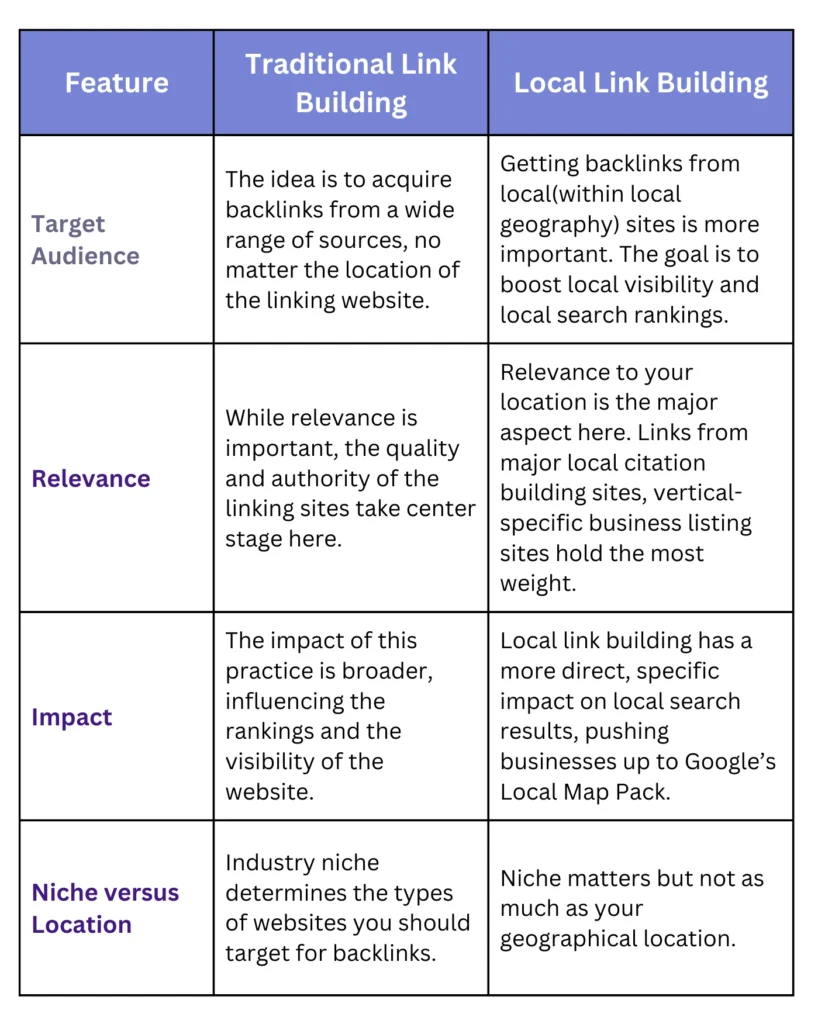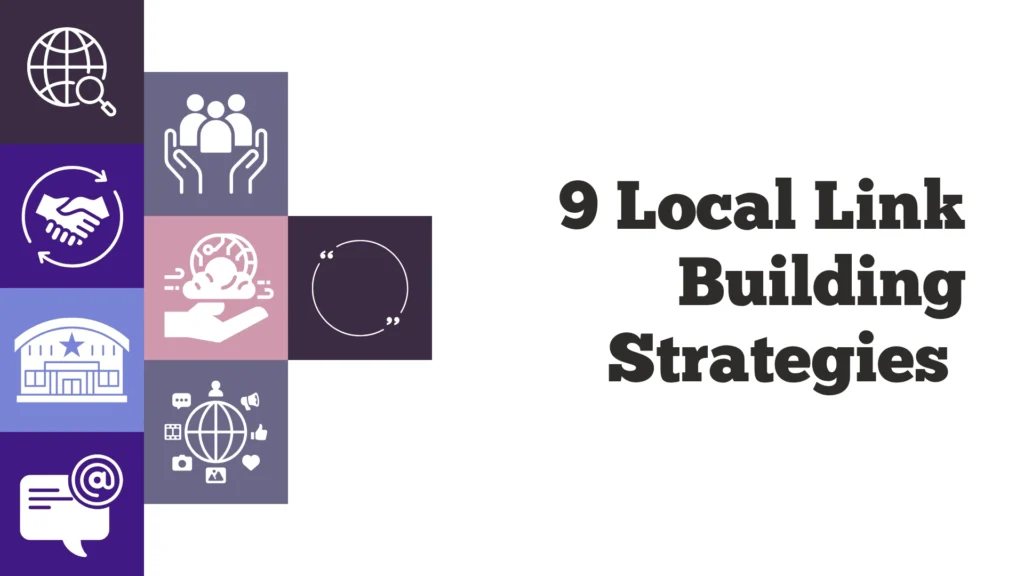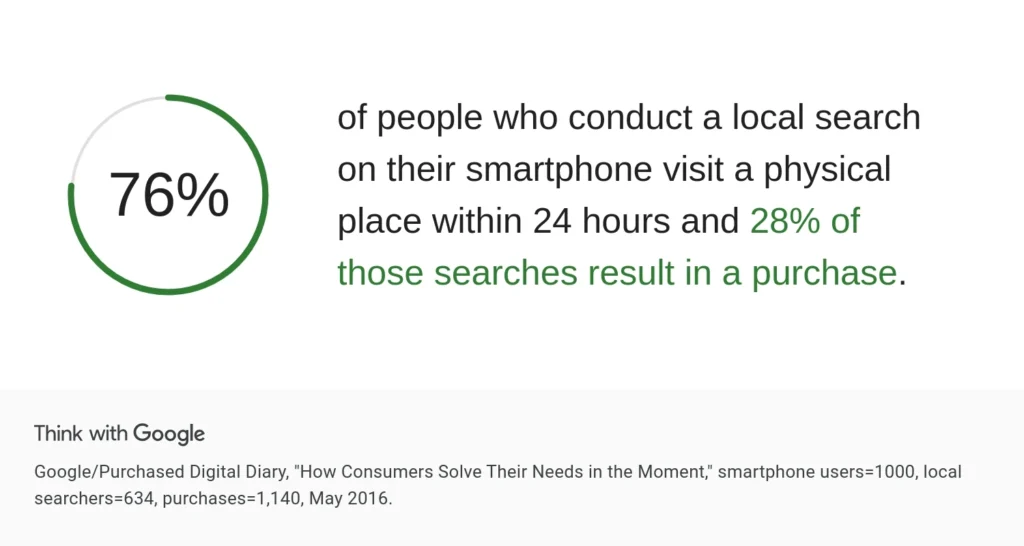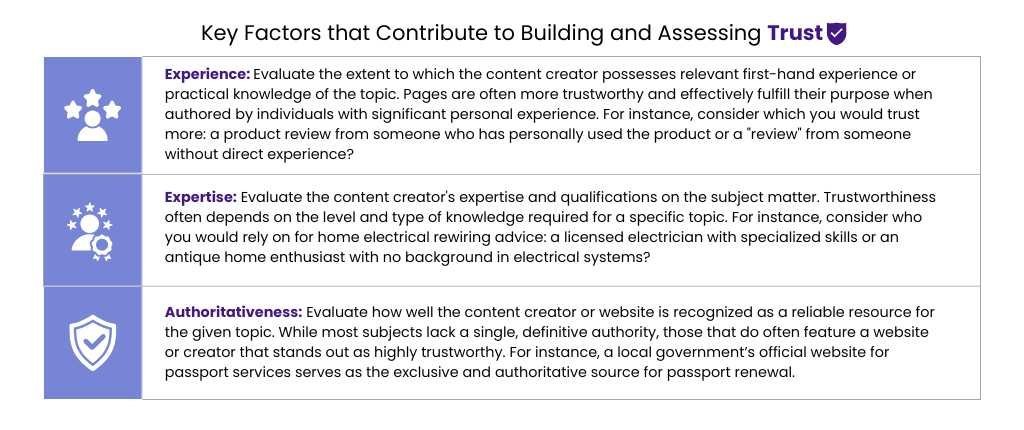
Let’s take a simple approach to start the article.
Picture yourself owning a local bakery. How much would it mean for your business to appear at the very top of Google’s search results when someone searches for “best bakery in your city“?
Wouldn’t that be worth prioritizing above all else? That’s what local backlinks can help you with.
Securing a backlink from websites within your location can do much more than you could imagine. By “local websites”, we are talking about area-specific news sites, local review sites, and directories, local community forums and blogs .
These sites are your ticket to enter the local digital spotlight. Why? Because they help increase visibility for local web searches.
Simply put, they boost your visibility right where your potential audiences are. Plus, links from these sites pushes your website to its potential to rank ahead of your competitors in SERPs.
Today, we will talk about how to make your local business stand out by building relationships with businesses and entities within the same geographic area. Our aim is to educate you on the following:
So, let’s begin!
A simple definition looks like, “Local link building is an SEO practice of acquiring backlinks from websites within the same location you are in.”
Links from local sites can give your local business a head start. They help:
Many local businesses are guilty of not making enough effort to connect with local audiences. According to recent Google Maps statistics, 86% of users open Google Maps to search for local businesses.
So, what does it mean for your SEO?
Google considers the relevance of your website to a specific location when ranking for local search results. Think of local backlinks for local SEO as geographic trust signals that can dramatically increase your ranking by sending signals to Google that your site is relevant to a specific location.
Now, let’s move onto the nitty-gritty of how local link building stands out from traditional link building.
While traditional link building focuses on casting a wider net to boost your site’s overall authority and visibility on a broader scale, link building for local SEO takes a more targeted approach by leveraging your immediate community and local customer base. To help you better understand how these two processes differ from one another, here’s a side-by-side comparison table:

Local link building is a more targeted and specific form of link building that only aims to improve local search visibility of a business.
Building links for your local website matters. It’s even more important for smaller businesses. Local links can help boost your small business SEO in the immediate area you are operating. Let’s break it down in simple terms here:
Local links boost your rankings in local searches. Google takes the number of backlinks into consideration when crawling and indexing your page. A higher number of quality backlinks means you have a better chance of ranking higher in local search results, such as Google’s Local Map Pack.

On average, the top five results on Google get 67.60% of all clicks.
Obtaining incoming links from reputable local sources such as community centers, and local newspapers adds credibility to your site. This leads your potential customers to trust your brand and perceive it as a credible local business.
Local SEO link building is a proven way to drive specific, highly targeted local traffic. That means your website is more likely to attract potential consumers. So, the chances for higher engagement and conversions is significant.
A majority of consumers rely on Google to find local businesses, and a staggering 42% of local searches resulted in clicks on the Google Map Pack or Google 3-Pack.
If you have come this far, you have understood that local businesses should aim to establish a strong network within their local community. Through this you can have a multitude of unique backlink opportunities to tap into.
In the next section, we will cover a plenty of local link building tactics you should implement to acquire the best backlinks.

Imagine you are a local organic food store who wants to make a solid online mark on the internet. A simple act of providing expert advice on sustainable farming practices to a local newspaper can help you become a trusted source.
It’s a win-win situation for both.
You lend credibility to the news article by offering authentic quotes as an expert. Your quotes help you to gain exposure to a broader audience, establishing you as a thought leader in your field. Plus, your association with reputable news sites increases brand awareness. If your quotes get featured in articles or stories that link back to your site, it boosts your site’s ranking.
Simultaneously, journalists or publications benefit from your expertise. Quoting experts adds credibility to their articles or news, making them more original, engaging, informative, and trustworthy for readers.
This is one of the most surefire ways to build high-quality backlinks that drive traffic to your local website. But how do you do this? Here are some practical tips to use in your quest to become a trusted source and secure quality backlinks:
Take Qwoted, it’s a networking platform meant to help reporters find expert sources from vetted industry experts (like you) for their stories.
You can use this opportunity to become a sought-after expert and connect with countless local links.

Here’s a step-by-step guide on how to use Qwoted:
Step 1: Create an Account:
To establish yourself as an expert and build a profile showcasing your knowledge and experience
Step 2: Browse Through the Anonymous Requests
Look for requests relevant to your area of expertise, where you can provide valuable insights.
Step 3: Pay a Credit to Unlock a Request
Spend a credit to unlock the details of a specific request and submit your pitch.
Step 4: Craft a Personalized Pitch
Once you have unlocked a relevant request, take the time to write a targeted compelling pitch demonstrating your expertise and how your insights can enhance their articles.
Step 5: Get Published
If the journalist finds your pitch valuable, they may include a link to your website in their article.
Being a local business, you likely have a strong network of relationships with other local businesses. Why not leverage these connections to boost your online presence? It’s a wise decision that you are being strategic and that you have chosen to build on something you already have.
Consider building links from businesses you already know. It can be your favorite distributor, reliable supplier, wholesaler, or even a contractor you know will vouch for you. These high-quality backlinks can boost your website’s authority and drive more organic traffic.
Here’s a small tip you can use: Spot a specific page on their website where a link to your business will make the most sense. This often-overlooked yet so-obvious step can help ensure your link is relevant and natural.
For instance, if you are a local bakery shop, find a nearby coffee shop website. Their “Partner Businesses” or “Local Favorites” page would be ideal for a natural link to your bakery.
Local SEO can win big, thanks to forums. Leveraging the potential of niche-specific forums can be a great strategy you can implement to achieve your local link-building goals. Forum links also help you with some referral traffic. Then again, you can strengthen bonds with your local community with this unique approach.
That’s killing two birds with one stone!
Before participating in online communities, consider the size of the forum, the number of active users, and the relevance of the topics.
A simple Google search can get you a handful of niche-relevant forums. For example, search for “keyword + forum” on Google, and you will get a list of forums relevant to your business. Forums with do-follow links should be your target because these links are good for your website’s SEO.
Here’s how to effectively build forum links:
Step 1: Profile Creation
Set up a professional profile, choose a relevant username, and complete your profile.
Step 2: Look for Relevant Threads
It’s where your target audience is. Search “specific keyword + forum,” or “specific keyword + discussion board” to find related forums.
Step 3: Set Up Alerts
Forums let you set up alerts to stay on top of relevant discussions. This way, you won’t get buried under a mountain of new posts every day.
Step 4: Start Posting
Once you find relevant forums and threads, participate in genuine discussions. Offer helpful advice to establish yourself as an expert in your field.
Step 5: Link to Your Site Where Relevant
Once you have built a strong reputation, start linking to your content. Don’t indulge in spammy promotions only to get banned from the forums. Only link when you think it’s absolutely necessary, adds value to the discussion and helps other users.
For example, if you are in the technology industry, you can consider building forum links through Stack Overflow, GitHub Discussions, Reddit, Digital Point.
Getting your business listed on your local Chamber of Commerce website is one of the easiest ways to build a valuable link.
It’s like telling the community and search engines, “We’re here, we’re a real business, and we’re part of the local scene.”
These backlinks are powerful because they come from trusted, local organizations. Plus, your listing usually includes your business name, address, and phone number (NAP), which helps boost your visibility in local search results.
Being part of your Chamber of Commerce isn’t just good for SEO—it’s a great way to show you’re invested in the community.
If you’re looking for a simple way to build trust, grow your reputation, and improve your search rankings, this is a no-brainer.

Wouldn’t it make sense if you create content that naturally draws links? We are suggesting creating linkable assets, especially resources that can be linked to. For this type of asset to work its magic, it needs to be:
You’ve accomplished half the battle when you create something that adds value to people’s lives. The rest depends on how well you promote it. It’s all about reaching the right audience at the right time and convincing them of your product or service’s value.
Think of a local guide, a calendar of upcoming events in your area, a catalog, a directory of other local businesses, and a detailed local map for tourists.
Once you have created such an asset, it generates local links in two ways: a) organic discovery; which is, if your content is of good quality, it may naturally attract backlinks from other sites. As people discover your content and find it helpful, they may link to it spontaneously. b) proactive promotion; spread the word about your content to relevant audiences.
Consider distributing content to regional newspapers and local content creators or bloggers. You may also want to share it with local businesses that might benefit from your content. Use the power of social media, online forums, and communities, too.
You can boost your local citations using many resources available out there. Google Business Profile (formerly Google My Business) is one of them.
Other major resources include Yelp, Bing, Yellow Pages, and Facebook.
These tools allow you to optimize your listing to improve your site visibility in local search results.
So, how does it work? How does it help your local business?
Citations appear in several places, mentioning your brand. This is helpful for your business as Google Maps and other search engines use these citations to verify your business’s existence and location.
Studies have shown that citation signals account for 13% of local ranking factors. Moreover, 28% of searches that include local citations result in a visit within 24 hours.
So, the more citations, the merrier(in the right places). It means that your website has more authority and credibility, which can lead to higher rankings in local search results.

Building a strong local SEO presence requires a multi-pronged approach. When you use the power of social media, you subtly attract local backlinks and dominate your local search game.
While social media might not pack the same punch as a guest post backlink, it deserves a spot in your local SEO strategy. As Google’s Search Evaluator Guidelines suggest, a website’s social media activity is a strong indicator of its website authority.

Having a killer social media strategy, can build a strong local reputation and help you to build strong connections with influences too. Not only does social media help you spread the word to a large number of audiences, but it also enhances engagement and creates opportunities for local people or businesses to link to your content.
Depop, a social eCommerce company, strategically blends user-generated content with influencer marketing and paid advertising to maximize reach.
While their primary focus is not on traditional backlink building methods, their strong social media strategy indirectly contributes to local link acquisition.
Some studies have revealed that brands with strong social media followings rank higher in local search results. These social signals give your brand a visibility boost, which Google takes into account when ranking local businesses.

You don’t have to do this alone!
Instead, use this tool, BrandMentions, to find unlinked brand mentions. It’s a tool that can save you precious time spent digging through the internet. It’s an excellent opportunity to claim those unlinked mentions and build valuable backlinks.
Pro Tip: Don’t just go after every mention. Not every reference is worth pursuing, especially if it’s on a low-quality site.
Once you have spotted a relevant reference, send an outreach email through the tool’s feature asking for a backlink if they have mentioned your brand in a positive light.
A decent compliment and a polite tone can go a long way in persuading website owners to add a link to your site. Remember, it’s about building relationships and providing value. So, don’t just ask for a link for the sake of doing it.
Simply put, a domain name is your digital address, a handful of letters describing who you are and what you do. A prestigious domain makes the best first impression. It also saves time and money generating awareness and makes marketing easier.
However, studies revealed that 70% of domains are not renewed after the first year. This means there’s a constant turnover of domain names, some of which might be perfect for your local business. So why not capitalize on this opportunity?
You can purchase lapsed domains in your industry from a trusted domain registrar like GoDaddy or an entire website (of course a high-authority one!).
Wondering why you may want to purchase lapsed domain names?
Buying a lapsed domain with local keywords or an established backlink profile can significantly boost your SEO and attract more local customers.
Here is how to purchase a domain name from GoDaddy:
Step 1: Create an Account
Ignore this step if you already have an account and log in.
Step 2: Search for the Domain Name
In the GoDaddy Domain search tool, you can search for the names and select one that matches your industry.
Or you can use domain name generators to get creative domain name ideas. Don’t worry if your chosen name is taken, the domain search tool will suggest available, alternative options that are still relevant.
Step 3: What If the Domain Name’s Taken?
You can use WHOIS Lookup Tool that lets you search for the owner of the domain name in question. Reach out to that owner directly (contact form is available on the tool’s site) and ask if they are interested in selling the domain name.
Be prepared to offer a fair price, but also remember that some domain owners may not be willing to sell.
There, you have it!
Now, let’s finish it off with some advanced local link building techniques for those willing to ramp up their local marketing efforts.
By now, you have likely mastered the basics of local SEO and have understood the strategies you can adapt to up your local link building game.
Let’s take one more further step to understand 3 advanced strategies you can implement.
Barnacle SEO is an advanced local link-building strategy that involves attaching your business website to high-authority platforms already ranking well for relevant search terms in your area.
Instead of solely relying on your website to rank, this approach uses the visibility and trust these platforms have built.
List your business on niche-specific directories tailored to your industry and acquire high-quality backlinks while making it easier for potential customers to find you.
Think of it this way: if you’re a real estate agent, directories like Realtor.com or Zillow can help amplify your local reach. Similarly, if you’re a contractor, platforms like Houzz or HomeAdvisor give you instant access to highly targeted audiences searching for your services.
Barnacle SEO strengthens your link-building foundation while positioning your business where it matters most—on platforms that dominate local search results.
It pays to partner with complementary local businesses to co-create content or helpful resources to which both parties can link. Take the time to find potential partners that serve a similar target audience and offer complementary products or services.
For example, a local restaurant can partner with a nearby brewer to create a joint blog post about food and beer pairings.
Brainstorm mutually beneficial content ideas. Think shared blog posts, or joint webinars.
Promote content on your respective websites, social media channels, and email newsletters.
Include relevant links naturally to each other’s websites within the content, such as in the author bio as a resource link.
Finding your local competitors’ backlinks is an easy feat. Acquiring similar links is not. But you can still replicate their strategy (the successful ones) and work on the opportunities your competitors might have missed.
An SEO tool like Ahrefs can help you identify and replicate your local competitors’ backlinks. Here is how to do it:
Step 1: Sign Up
Create an account on Ahrefs, and plug your competitors’ domains or URLs into Site Explorer. Click on the Backlinks report, where you can see all of their backlinks.
Step 2: Find Competitors’ Replicable Links
a) Look for Directory Links
Enter your homepage into Site Explorer. Get the Link Intersect report. Add some competitors’ homepages in the blank fields.
Set the search mode to URL for all pages and click on the “Show link opportunities” button.
This will show you all the directories that link to your competitors but not to you. Then, look for a niche site and local directory where you can sign up and register your business for backlinks.
b) Find Listicle Opportunities
Search for listicles and roundups where your competitors are mentioned in Ahrefs’ Backlinks report. Then, go to Content Explorer and input the names of a few of your local competitors.
To exclude your brand, add “-your business name” to the search query to filter out existing mentions.
Review and identify opportunities to pitch your business.
c) Get Competitors’ Links from Interviews
Go to Site Explorer. Enter the Twitter URL of your competitor’s CEO, maybe. Then, go to the Backlinks report.
Filter for results where the referring page URL includes “episode”, “podcast”, or “interview.”
It’s that easy. Now, feel free to reach out to the hosts to pitch your appearance.
Over the years local link building strategies have been a game-changer for SMEs all over the world. No matter the size of your business, it’s time to roll up your sleeves and take action!
Here’s your 3-step action plan to turn theory into success:
Step 1: Begin by optimizing listings on high-quality local directories.
Step 2: Research local competitors’ backlinks and identify new opportunities.
Step 3: Conduct outreach for guest posting, testimonials, and sponsorships to kickstart local link building.